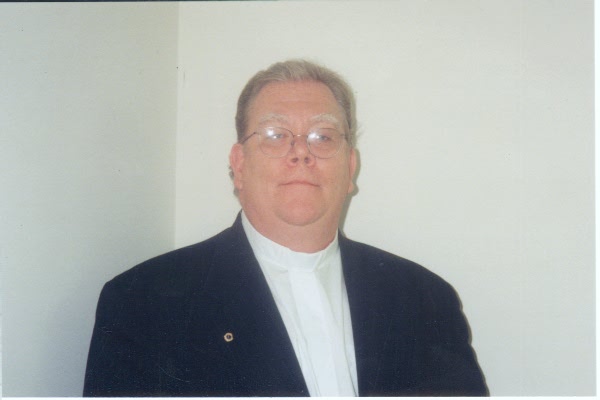SERMONS FROM THE PULPITS OF
Union, Pleasant Grove, & Wesley Chapel
United Methodist Churches
Wesley Chapel & Mineral Springs
North Carolina



Reverend Raymond Osborne, Pastor
Please Note That Most Messages Follow
The Revised Common Lectionary
A Mountain Top Experience in a Valley Filled World!
St. Luke 9:28-37
St. Luke 9:28-37
As I opened last Sunday’s Observer I read the following:
“A flag of Old Man Winter flaps from the front porch of the house on a cul-de-sac in east Charlotte. Beside a snapping fire in the family room, two small kids watch a video. And Michael McCoy is at home.
He's at home and it's 3 in the afternoon on a Monday.
Once, at this time of day, he would have been working in a cubicle in a Bank of America office uptown. Instead, he's spent the day in his new cubicle, a corner of his dining room equipped with a computer. On top of the computer he's placed his "Michael P. McCoy, Vice President" nameplate. From here he carries out his new job: Finding work. In September, Michael was laid off from his job as a consumer credit risk officer, and now, almost nothing is the same.
Michael, 42, is a soft-spoken person, not given to dramatics. But even his voice rises in amazement when he talks about what happened to him. Because this is the fifth time his chosen career in banking has pushed him out.
The other times, Michael wasn't worried because he had a job waiting, for more money. When he joined BofA in 1999, he figured he was safe.
So did a lot of other people in Charlotte.
For years, Charlotte's BofA and First Union triumphantly took jobs from New York, San Francisco and Philadelphia and brought them to the Southeast - the spoils of war. The companies turned Charlotte into the country's second-largest banking capital.
But two years ago, when the banks were still fresh from sealing their biggest mergers, everything changed. To make the mergers pay off, the banks had to chop costs. Now a sputtering economy, a jump in loan defaults and a drive for efficiency have U.S. banks dumping jobs by the thousands. In the past 12 months, Bank of America has said it will cut 10,000 jobs, First Union more than 5,500 and Winston-Salem-based Wachovia, 1,800. It's not known how many cuts came in Charlotte.”
Some of you in this very sanctuary can identify with the plight of Michael McCoy. While we live in one of the most prosperous times our world has ever seen we live in a time of “down sizing,” corporate buyouts, mergers, and acquisitions, and some of you have been caught in the middle of it all. All of a sudden your world is turned upside down.
Thursday I read these words, “Against a gray backdrop sprinkled with snow, sleet, rain and wind, they gathered for a memorial service that featured 25 moving minutes of memories, songs and Bible quotations in a tribute to someone who died while pursuing what would have been a record eighth NASCAR Winston Cup title.
Earnhardt's family was accompanied by friends, competitors, business associates and NASCAR officials at the invitation-only service. Even with a large contingent of law enforcement officers on hand to try to protect the privacy of the mourners, fans gathered outside the church anyway, seeking a way to cope with their grief for the death of the man with the magnetic personality. Inside, NASCAR chaplain Dale Beaver delivered a eulogy in which he recalled his first meeting with the man known as "The Intimidator."
Earnhardt, 49, was buried at an undisclosed location after a private funeral for family members and select friends Wednesday in Mooresville.”
And then I read about a rapper who has a name similar to a popular candy who gets a grammy for an album that is filled with hatred, violence, and a fantasy about his own Mother being raped!
I don’t know about you but sometimes I have to ask what this world is coming too? Where in Heaven’s name is all the good? What has happened to the “good times?” Where have they gone?
Picture a craggy mountaintop. Men appearing out of nowhere. A dark and terrifying cloud. Strange sounds and sights.
The Transfiguration? No, not this time. The Battle of Blair Mountain.
It was on a jagged peak in West Virginia, nearly 80 years ago, that the biggest armed rebellion outside of the Civil War was fought. An army loyal to the coal companies fought 10,000 rebellious miners for 10 days beginning on August 24, 1921.
The Battle of Blair Mountain cost the lives of 25 men and resulted in 1,500 miners facing charges of treason, murder and conspiracy. The miners had revolted after a pro-miner sheriff was assassinated during a summer of unrest over working conditions.
Back in 1921, the coal companies won both the battle and the war.
Today a new fight has erupted over Blair Mountain and others like it. Environmentalists and long-time West Virginia residents are going to court and fighting the practice of what is called "mountaintop-removal mining" - lopping off mountaintops to get the coal inside. This is especially irritating to many natives who argue that their state is the "mountain" state for a reason; flat top Appalachians are not a part of their vision for West Virginia.
The practice has not only removed the tops of mountains but buried more than 500 miles of streams and displaced whole towns from the valleys. Mountaintop removal mining is basically strip mining on the top of a mountain, with the dumping of rubble into the valleys that separate the steep peaks. Blasting removes several hundred feet of a 2,000 to 4,000 foot mountain, and the mining company then moves in and extracts a seam of coal.
Move now from this chaotic scene, to another mountaintop crisis. We see, not miners, but fisherman, and they're witnesses to one of the most spectacular events of Scripture - what we call the transfiguration of Jesus.
This time it is Peter who wants to do some clear-cutting on the mountaintop for a construction project. But his goal was not to shave off the top, but to preserve the experience.
I like Peter! I can identify with Peter! I mean its Peter who is consistently portrayed in Scripture as sticking his foot in his mouth. It’s Peter who is always speaking before logic has a chance to tell him how wrong his big highfaluting ideas are. It’s Peter who doesn’t realize that the things he thinks he can do and should do make absolutely no sense in the configuration of the human thought process. A thought process that, by the way I believe was pure as designed by God but we have allowed it to become polluted by just enough secular humanism that we stop short of fulfilling the full potential that God has placed inside of everyone of us.
Here, once again, Peter's well-known impulse is to build three chapels on the peak of the mountain and once again scholars, theologians and preachers usually deride him. “We mustn't linger on the peaks,” they would say, “but return to the valley of service proclaim the pastoral pundits. One can't live in the rarified atmosphere of a mountaintop; we're meant to live in the valleys of human experience and suffering.”
And I think that John Wesley might agree with that – especially the last part of that proclamation. However Peter was doing no less than any one of us here this morning would have wanted to do under the same circumstances. Peter wanted to preserve this glorious moment for all times sake!
I mean here is a guy who'd spent most of his life out on a lake in a boat. His clothes reeked of fish, his hands were gnarled from both the weather and casting and hauling in fishing nets. His life was going nowhere. He was facing a flattop future until Jesus came along.
It's probable he'd never been hiking on Mt. Hermon before, much less experienced a transfiguring, transforming and transfixing moment as this one. He was in on something special, seeing visitors and visions, and he didn't want to leave, didn't want to shave off the top of this mountain. No sirree.
I have a public confession and apology to make. I use to stand in pulpits and preach that we cannot stay on the mountains and the quicker we realize that the better off we will be. For that beloved, I am truly sorry. I have come to a place in my life where I realize that when we find ourselves in a mountain top experience, we need to hold on to that experience for as long as we can because the reality is that it isn’t going to last forever.
When we flatten the mountains of our lives, the streams fill up with the debris, and life becomes a desert and a wasteland.
When the coal companies of West Virginia shave off a mountaintop, they can never put it back. The peak is gone. And all that is left is a scar that functions as a reminder of the glory that once was.
Perhaps we have allowed our attention to become so distracted by bad preaching that says, “Come down off that mountain and live in the valley of suffering,” that we have created for ourselves a dilemma. One in which we have developed a wretched inability to see the luminous, the glorious, the holy and the sacred in the world around us, in the mess and mundane of our lives.
Someone has asked why is it that we do not see the holiness of the moment when:
A child crawls into your lap for a story?
The hand of the homeless reaches out for a sandwich?
The strains of the music that moves you floods your soul?
You take time to pray?
You squeeze the juice of an orange into your glass for breakfast?
You open the pages of Scripture to read and study?
You come through disagreements holding the charter of forgiveness and reconciliation?
You pray for the sick in a hospital room?
You awaken to a sunrise?
So, what's our transfiguration? Our peak experience? And what are we doing to preserve it?
Shave off the summit if you will, but you'll have nothing left but a flat top future.
Click Here To Receive FREE Notification When
New Sermons Are Posted
 This Site is a Member of the
Kerusso Sermon Web Ring.
This Site is a Member of the
Kerusso Sermon Web Ring. |
|---|
|
[Skip Prev]
[Prev]
[Next]
[Skip Next]
[Random]
[Next 5]
[List Sites]
[Join]
|

People Have Reviewed This Sermon

